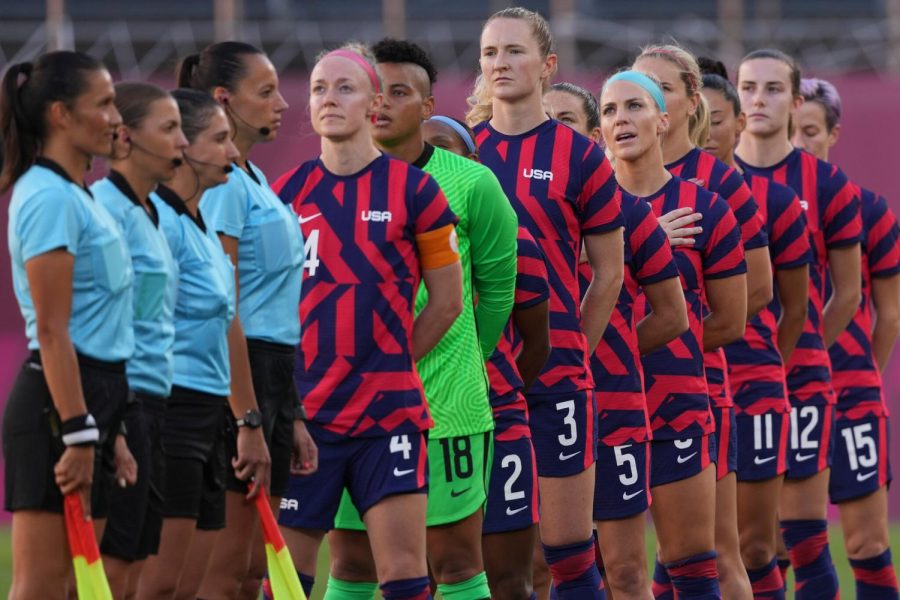U.S Women’s Soccer Team’s Win Signals Progress For All Women’s Sports
U.S Women’s Soccer Team Lined Up On The Field For The National Anthem
May 10, 2022
Throughout the span of six years, The United States Women’s National Soccer Team (USWNT) has been pushing back against the pay gap between professional men’s and women’s soccer. The USWNT finally achieved a win when they settled a twenty-four million dollar lawsuit with the US Women’s Soccer Players Association in February. This win paves the way for other conversations about equality in women’s sports.
FIFA Women’s Player of The Year Megan Rapinoe says in NBC she is excited about the new changes and the more changes to come in not just soccer but all women’s sports.
“I think we are really in the midst of an incredible turning point in women’s sports,” she says. “I think we’re all going to look back on this moment with incredible pride … if you’re not paying attention to this right now and what’s happening in women’s sports, you’re sleeping on the whole thing.”
Yet even with new advances in women’s soccer, there is still a long way to go. In professional women’s sports, Olympic sports, and even high school sports true equality goes further than just equal pay.
At the 2022 Winter Olympics, there is still a sport that is off-limits to female athletes but open to men. Nordic combined is a combination of cross-country skiing and ski jumping that is exclusively a male-competed sport. Female athlete Tara Geraghty describes her frustration with not being able to compete, saying “I’ve wanted to compete internationally in Nordic combined since I was about 11 years old. And now I’m 26. And [my sport] isn’t in the Olympics, and I don’t know when it will be in the Olympics.”
Women’s and men’s sports have been the topic of conversation both nationally and locally here at Jonathan Alder. At Alder, the amount of money each sport has to spend on equipment is proportional to the amount of money they bring in through ticket sales. Therefore, sports like football, which bring in significantly more money in ticket sales, have more money in their budget than sports like tennis, which do not have any ticket sales.
In terms of high school sports, JAHS athletic director Scott Reule explains the difference between female and male sports at our school: “You have to have the income in order to pay the expenses. If women’s sports do not bring ticket sales in, then the money is not there.”










